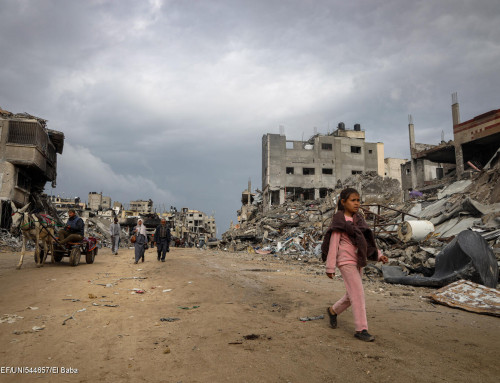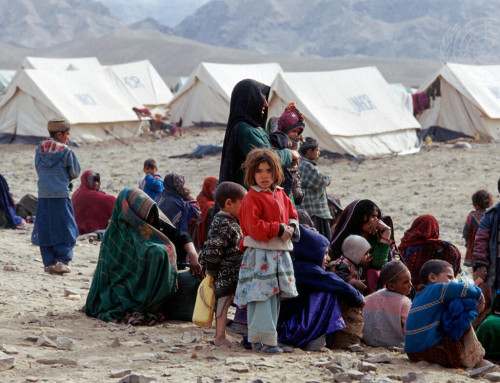Statement by the Special Representative of the UN Secretary-General for Children and Armed Conflict on World Humanitarian Day 2021
“As humanitarian crisis are unfolding in places like Myanmar and Afghanistan increasing the already dire needs of children trying to escape violence, parties have a responsibility to allow the safe, timely and unimpeded access to humanitarian personnel and ensure their safety and security as well as of humanitarian assets. This is paramount to ensure that all children trapped in conflict receive an aid vital to their survival,” said the Special Representative of the Secretary-General for Children and Armed Conflict, Ms. Virginia Gamba. Humanitarian action upholds the principles of humanity, neutrality, impartiality and independence.
Across the world, children bear the brunt of deteriorating peace and security situations. In Afghanistan, the Central African Republic, Israel and the Occupied Palestinian Territory, Libya, Myanmar, Somalia, Syria and Yemen, children are in urgent need of humanitarian assistance. Escalation of conflict, armed clashes and disregard for international humanitarian law and international human rights law gravely affected children. Hospitals, schools and their personnel should also be protected.
For the second year in a row, World Humanitarian Day is being marked as the international community continues to respond to the increased needs of affected populations because of the COVID-19 pandemic.
The study Impact of the COVID-19 pandemic on violations against children in situations of armed conflict, published earlier this year by the Children and Armed Conflict Office, shows that COVID-19 related containment measures have at times hampered timely access to humanitarian assistance for conflict-affected children. “I call on parties to conflict to make exceptions in their containment policies for humanitarian actors. The delivery of humanitarian assistance to conflict-affected children must be considered as life-saving work and thus prioritized as part of COVID-19 response plans”, she added.
With 4,156 incidents verified by the United Nations, the denial of humanitarian access was the third most prevalent grave violation against conflict-affected children in 2020, as shown in the recent Secretary-General Annual Report on Children and Armed Conflict. The most affected country situations were Yemen, Israel and the Occupied Palestinian Territory, Mali and the Central African Republic.
“I am deeply concerned by the increasing use of denial of humanitarian access by parties to conflict as a tactic of war. Interfering with the free passage or timely delivery of humanitarian assistance to persons in need as well as the deliberate attacks against humanitarian workers may amount to war crimes or crimes against humanity,” the Special Representative added.
###
For additional information, please contact:
Fabienne Vinet, Communications Officer, Office of the Special Representative of the Secretary-General for Children and Armed Conflict
+1-212-963-5986 (office) / +1-917-288-5791 (mobile) / vinet@un.org
Follow us on Instagram, Twitter and Facebook:
https://www.instagram.com/nochildreninwar/
www.twitter.com/childreninwar
www.facebook.com/childrenandarmedconflict



